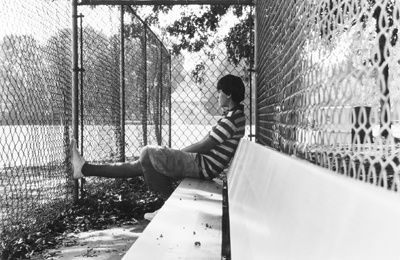All Nonfiction
- Bullying
- Books
- Academic
- Author Interviews
- Celebrity interviews
- College Articles
- College Essays
- Educator of the Year
- Heroes
- Interviews
- Memoir
- Personal Experience
- Sports
- Travel & Culture
All Opinions
- Bullying
- Current Events / Politics
- Discrimination
- Drugs / Alcohol / Smoking
- Entertainment / Celebrities
- Environment
- Love / Relationships
- Movies / Music / TV
- Pop Culture / Trends
- School / College
- Social Issues / Civics
- Spirituality / Religion
- Sports / Hobbies
All Hot Topics
- Bullying
- Community Service
- Environment
- Health
- Letters to the Editor
- Pride & Prejudice
- What Matters
- Back
Summer Guide
- Program Links
- Program Reviews
- Back
College Guide
- College Links
- College Reviews
- College Essays
- College Articles
- Back
The Worst Kind of Pain
The kid you just put down is smiling slightly, blood rushing to his cheeks. He’s shorter than you, and probably different in other ways, so he’s already vulnerable. He’s trying to be strong—trying to hide how much you hurt him. But underneath the shaky grin, his eyes are shining and his heart is shattered.
I was lucky enough to grow up in New York City, a place where differences are embraced and being unique is okay. Additionally, the school I attended for nine years had a mission of cohesiveness and making children comfortable with expressing themselves. I heard stories of kids getting beat up and having their lunch money stolen, but that seemed a world away from my environment. Things like that simply didn’t happen.
Everything abruptly changed around fifth grade. My class had a new student named G.Mo who was from Korea and knew little about American customs. I found him fascinating, and we were good friends immediately. However, the rest of my class didn’t agree. Kids took every opportunity to ridicule G.Mo from the way he pronounced words to his taste in food. Still to this day, I can remember the sounds of his anguished sobs from the bathroom. You don’t just forget things like that. Whether it was the bullies, the victim, or the bystanders, nobody left that situation unharmed.
As hard as it was to watch G.Mo get bullied, it was equally hard to watch some of my best friends stoop to this level. For the first time, I was forced to choose between going with the crowd or doing what was morally right. As much as I tried to stand up for my friend—and I tried very hard—the force coming back at me was strong and unyielding. Sometimes I found myself joining in without even intending to. Anyone who says that standing up to a friend is an easy thing to do is very wrong, because I know firsthand that it’s definitely not.
About a year later on a Saturday afternoon, G.Mo called to tell me he was leaving the school. As much as he assured me it wasn’t because of the way he was treated, I knew better. On our last day of sixth grade, I said goodbye to him and have only seen him once or twice since.
If a friend or someone you know is being picked on, it is so important to do what you can to stop it, because you never know when it will be too late. Even comforting the victim later would help. I will always regret not being firmer in my beliefs, because I now know it may have cost our friendship.
Now in high school, subtle patterns are recurring. Every so often, kids get teased or belittled. Although nothing comes close to what I witnessed before, I can’t help cringing when a fifth grader is yelled at on the bus, because I still remember G.Mo’s agonized sobs all those years ago.

Similar Articles
JOIN THE DISCUSSION
This article has 0 comments.
